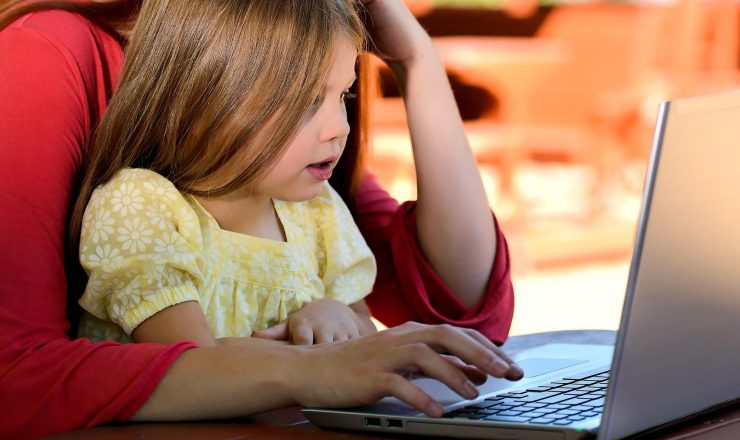Parenting in the digital age adds a whole new, messy layer to an already tough job. Teen parenting already includes navigating the high school curriculum and increasing competition for college admissions, trying to impart some sense of financial responsibility to my daughter, and managing all of the new challenges that come with teen driving. As if that weren’t enough, I am also forced to maneuver the increasingly complex world of technology which includes my child’s use of a smartphone, laptop, Netflix, ipad, and occasional gaming device. To be honest, I’m not an expert on any of these devices myself. In fact, my daughter is often tech support to my own shortcomings with my personal technology.
Though I would like to, I cannot deny the overwhelming statistics. A 2010 study by the Kaiser Family Foundation found that 8- to 18-year-old children devote an average of 7 hours and 38 minutes to entertainment media each day. According to this study, the majority of these screen hours are spent “media multitasking,” meaning teens are using more than one medium at a time. And, when this was accounted for, it was found that teens are actually exposed to about 10 hours and 45 minutes worth of media content each day.
To be fair, I also appreciate all of the wonderful and exciting qualities of technology. I love that my child is able to “share” her school work with peers for review via her laptop. Also, I have completely embraced the use of Kahn Academy as an academic support. More often than not, I walk by my child’s room at night and hear her using face time to study with a group. And, there are positives with regard to social connections and social media as well.
But for every “healthy” aspect of screens, it seems I am assaulted with a host of negatives on the daily. Although there continues to be controversy over causal links, there is much research correlation screen use to depression, isolation, anxiety, distractibility, and social issues. Screen use has been linked to obesity and sleep disturbance as well. For these reasons, parents must be involved with our children’s relationship to technology just as we hope to impact their relationships with finances and driving. We must help our teens to develop a healthy respect for and use of technology.
So how do parents foster this? How do we set reasonable limits and expectations on devices which encourage our teens to define their own relationships with technology? To be fair, the way we manage this as parents begins much earlier than the teen years. But technology is ever evolving just as our children are ever maturing and growing.
While every parent will have to determine their own limits based on the emotional maturity and developmental age of their child, here are some general guidelines to consider in this process….
- Establish and maintain “tech free zones” for all family members (the dinner table, while watching a family movie, etc.)
- Give all devices a bedtime for all family members.
- Have a shared “charging area” not in bedrooms.
- Utilize contracts between parent and child regarding devices. Be sure to include who will pay for repairs if devices are lost or stolen as well as general expectations for purchases, apps, and other tech privileges.
Like all privileges, technology comes with responsibilities. As parents, we have the opportunity to model healthy relationships with technology for our children. We also have the responsibility to help our children respect this awesome privilege and develop their own relationship with technology.
Shelley Coleman M.A., L.P.C.-S.
Shelley Coleman is a Licensed Professional Counselor and parent. She is in private practice in Lakeway where she provides play therapy, child and adolescent counseling, family therapy, group therapy, and parent education. She can be reached via her website at www.shelleybcolemanlpc.com






